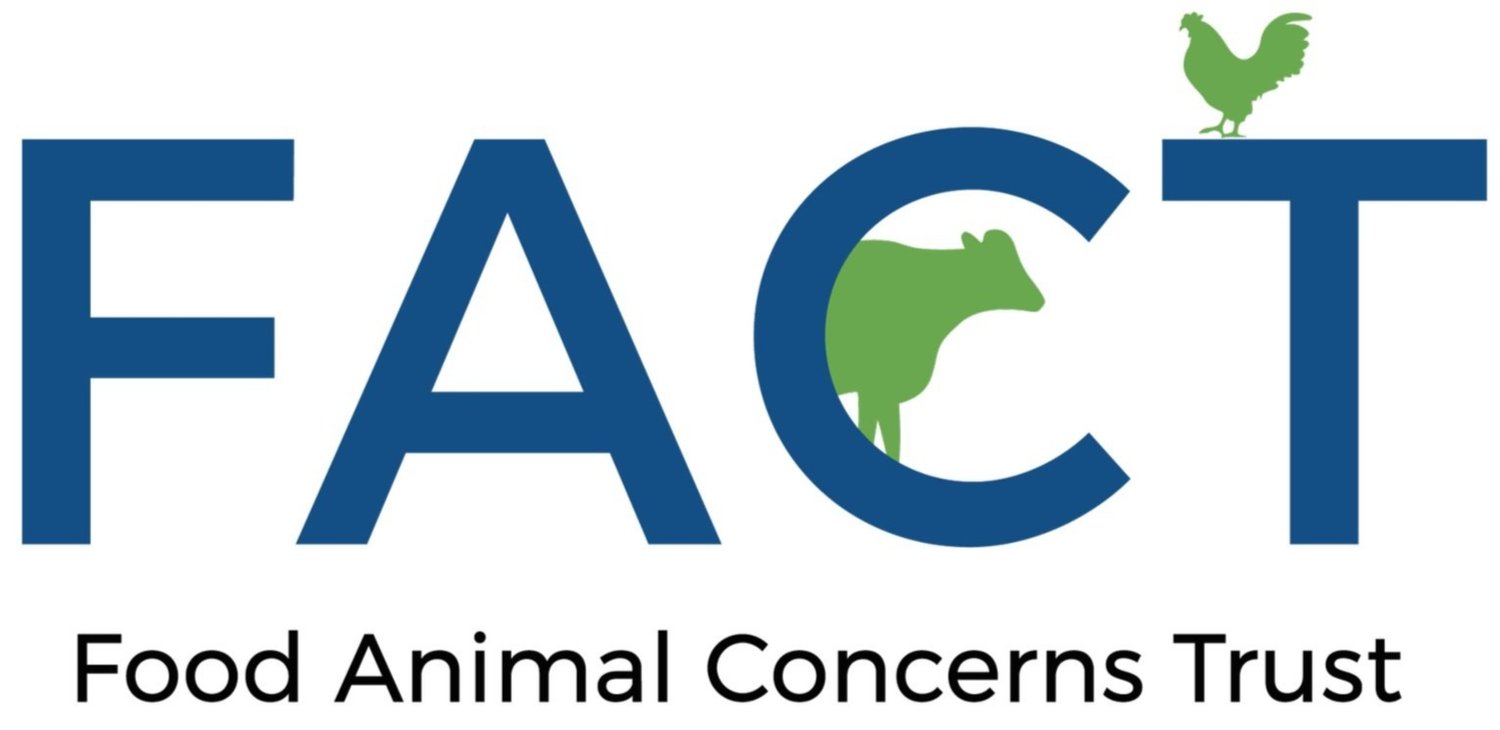Deciphering Dairy
How being mindful of the realities of dairy production empowers us to make choices that align with our values and ensure livestock are treated with compassion and respect.
By Katie Meade, FACT’s Humane Farming Program Associate
Concerns regarding animal welfare and ethical farming practices have become increasingly prominent among consumers. As of late, one area of particular concern is the Dairy industry. While both organic and conventional factory dairies project images of happy cows living peaceful lives on green pastures, recent articles in The Atlantic and Farm Forward profile the inhumane treatment of animals inherent on factory farms despite their certifications. Scenes like those described in these articles are forcing even the most conscientious consumer to wonder how they can enjoy dairy, without feeling guilty. At FACT we know that making informed choices about where our animal-derived products come from empowers us to make positive change within the food system and advocate for the well-being of farm animals.
For the average industrial dairy (200+ cows), the financial margins invariably run tight, and workdays are exceedingly long. Choices are often made not from a lack of care for their livestock, but from necessity. In such a compromised yet seemingly necessary industry, dairy cows endure subpar living conditions, including overcrowding, little-to-no-pasture access, and premature culling*. Surprising to many consumers are the standard practices used in all industrial dairies of forcibly separating calves from mothers immediately after birth, the performance of painful medical procedures without pain medication, and the drastically reduced life span of animals. The average lifespan of a milk cow is fifteen to twenty years; For a factory farm cow, it is five years. Additionally, calf mortality is incredibly high.
Certified Humane dairies, while not perfect, do offer a higher level of assurance regarding animal welfare when compared to their non-humane certified counterparts. However, these certified farms and agencies need to comply with the tenets of "Certified Humane.” Consequences, including heavy fines and temporary or permanent forfeiture of certification must be established and enforced.
For conscientious consumers seeking truly ethical dairy options, turning to local farms that prioritize animal welfare and value transparency in their practices is a valid choice. Small-scale or family farms - less than one hundred cows - allow for more personalized care of the animals and closer oversight of farming practices. Farmers who invest a great deal of time, energy, and finances into their animals and land are much more likely to make decisions based on their welfare long-term, vs. quarterly profits.
Acknowledging the harsh realities of the dairy industry can serve as a call to action rather than a deterrent to enjoying all dairy products. We encourage you to openly and honestly discuss your knowledge, concerns, and possible solutions regarding industrial dairy with your friends and family. As educated consumers we all have the opportunity and responsibility to play a vital role in creating a more ethical and compassionate dairy and food animal industry.
At FACT, our goal is to ensure a farming system where profits exist harmoniously with compassion for animals, people, and the planet. We hope you will join us.
*Culling: being sold, sent to butcher, or slaughtered

